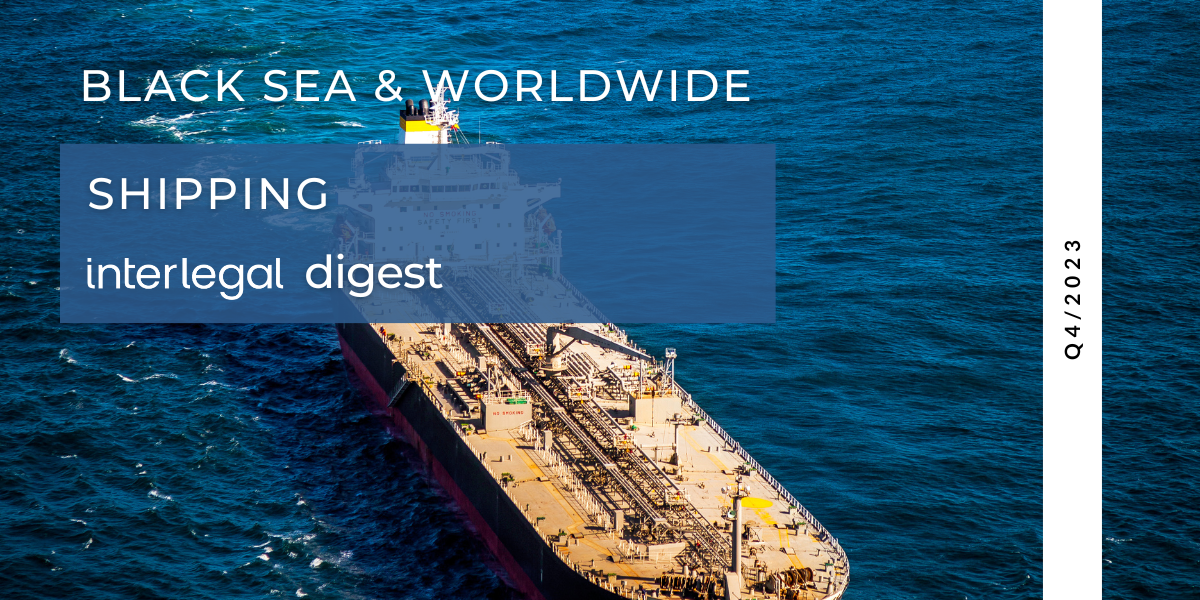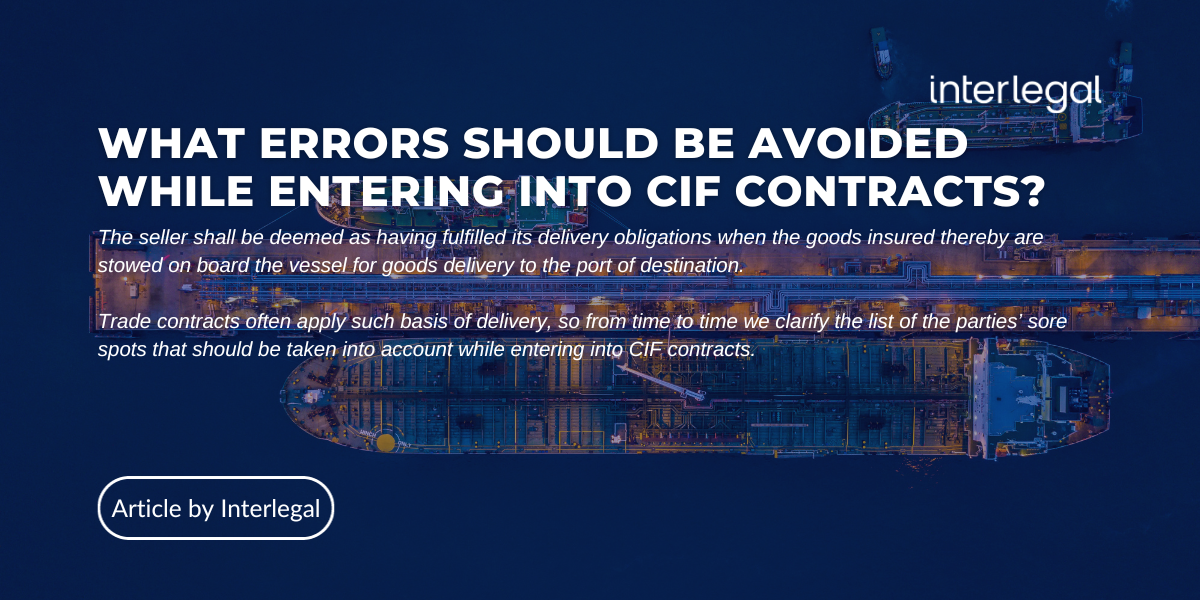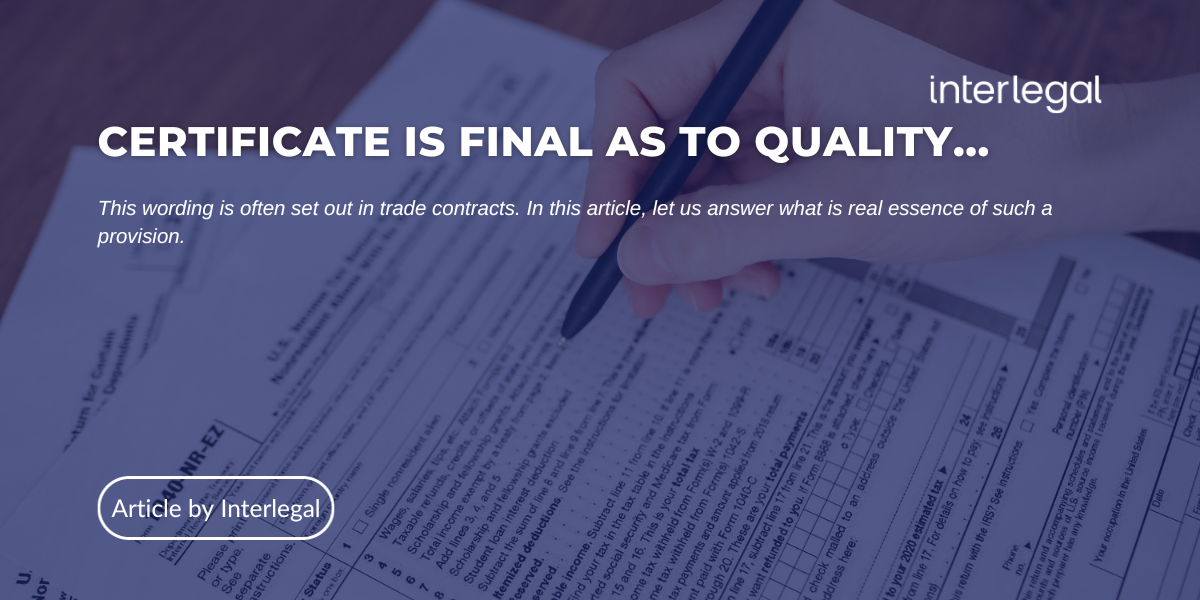Forwarder’s Liability as a Consignee under Bill of Lading – a Ukrainian Perspective
16 February, 2012
2
What is the legal status of a consignee as the person in whose favour a contract of carriage is made? Should it be substantially different if this role is played by a forwarder?
Сontact our experts for assistance in your business.
Legal Status of Consignee
It is generally known that contract of carriage of goods is commonly made in favour of a third party — the consignee. Parties in this contract are the shipper, on the one hand, and the carrier — on the other, or the charterer and the shipowner if the contract of carriage includes elements inherent to a lease contract, which is a charterparty. It is this latter type of contract governs the relationship between the parties of the contract of carriage. Whereas bill of lading, as a one-sided document issued by the carrier, whether or not supplementing the charter, defines the status of the consignee, and governs the relationship between the carrier and the consignee of goods.
Thus, bill of lading is a primary transport document, which confirms the existence and content of the contract of carriage of goods and the actual receipt of goods for transportation. By virtue of the real nature of this contract a master’s signature on the document confirms that cargo is received by the carrier, and that between the acceptance of the goods and the signing of the bill of lading no legal facts that would prevent the signing of the bill of lading have taken place. And if the shipper and the consignee is the same person, this does not much change the matter. Still the contract of carriage of goods involves three parties: the carrier (shipowner), the shipper (charterer) and the consignee. This latter is essentially a major creditor in the obligation of the contract of carriage, as the subject of this contract and its main content is the duty of the carrier to deliver the cargo to the port (place) of destination and hand the cargo over to the proper recipient (the consignee).
The modern concept of the contract of carriage of goods contains the idea that the right of the consignee to receive the goods is also accompanied by the consignee’s relevant duties. Thus, to use a classic, there are no rights without responsibilities.
In Ukrainian legislation duties of the consignee are defined in Art. 163 (1), Art. 167, Art. 170 (3) of the Merchant Shipping Code of Ukraine. Thus, the consignee shall receive and take the goods from the port once he has paid all payments due to the carrier, if it had not been done earlier by the shipper or the consignee, including freight and demurrage, and reimburse the costs incurred by the carrier in connection with the goods, and in case of general average — make a general average deposit or to provide appropriate security.
So it turns out that under contract of carriage a consignee not only becomes a creditor, but may well be the debtor. That\’s the theory. In practice, the collection of debts from the consignee, especially if it is a freight forwarder is a rare event in court practice in Ukraine.
Practice makes Positive (Court Case from our Practice)
The carrier delivered cargo to the Ukrainian port in two containers under two bills of lading. Both bills of lading indicated a forwarding company as the consignee in the relevant boxes. The forwarder — consignee failed to receive the cargo in due time. So the carrier was forced to place the goods in containers for storage in the port. This entailed considerable amounts accrued for storage of the containers at the warehouse, as well as demurrage and detention. Relevant invoices were issued to the forwarder. Finally, the forwarder, using credit terms under his contract with the carrier, had taken the goods out of the port.
Afterwards the forwarder refused to pay against the carriers’ invoices pretending to be the formal consignee, not an actual cargo owner — buyer under the contract of sale. Further argument was that the containers were released on the basis of the handling order, which served only as an internal port document. The carrier’s claim was not responded by the forwarder and the carrier had to go to court. By the decision of the Economic Court of First Instance, upheld by the Economic court of appeal, the carrier’s claim had been completely satisfied. Besides the mentioned costs, the forwarder had to pay court costs plus 3% per annum.
Thus, the Court held that the status of a freight forwarder does not contradict his role of a receiver under the contract of carriage of goods. As the consignee has the obligations arising from the contract of carriage, he must be held liable for violations of these duties. A freight forwarder, acting on his own behalf as a contractual receiver of the goods is liable for failure to perform his duties as a consignee under related Bill of Lading.
So in this case the court confirmed our long-held assumption that the right of a consignee to receive goods corresponding to a carrier’s obligation to deliver the goods is also accompanied by the consignee’s relevant duties, irrespective of any other characteristics of the consignee’s legal status. Once the consignee claimed the goods he acquires all the rights and obligations of the merchant under corresponding Bill of Lading.
Original article on forwarderlaw.com
























































